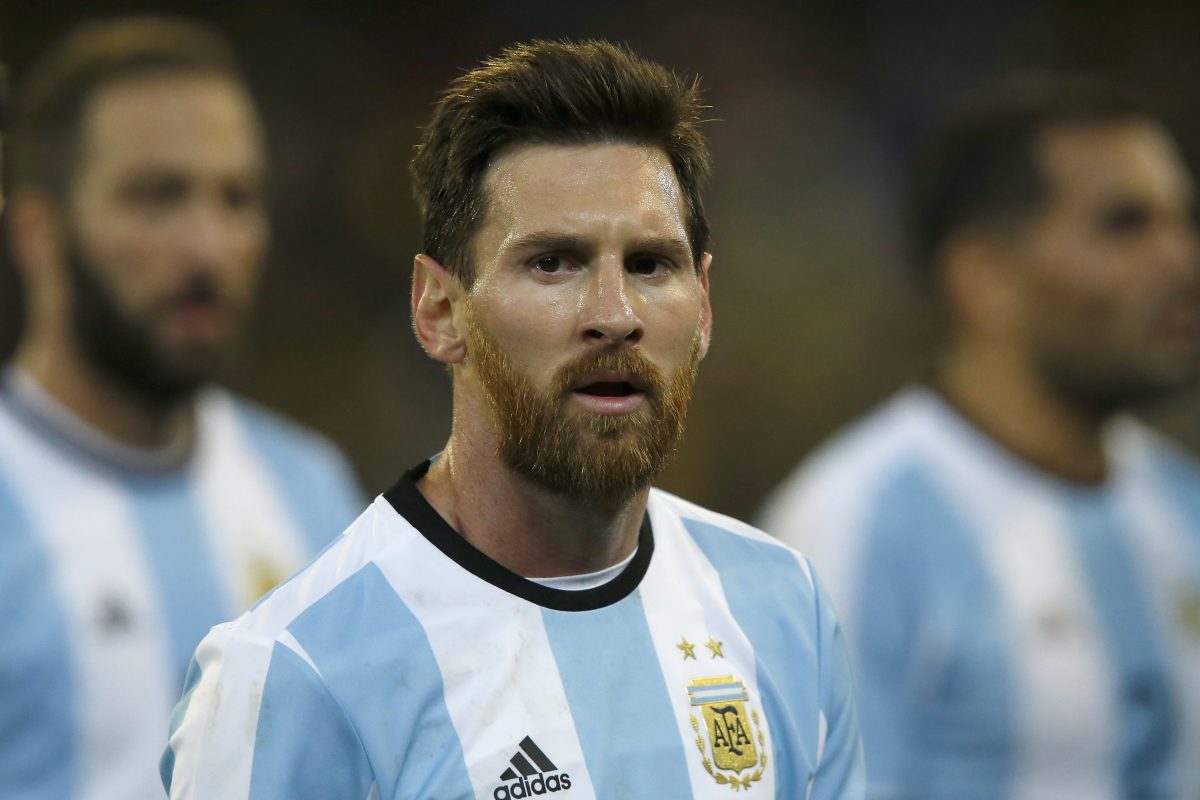Flashback to July 13, 2014: on a long and wearing day of high-end soccer in Rio de Janeiro, Lionel Messi vomited. He shook it off, but the inconspicuous first half moment was foreboding. A nervy and stretched Argentina labored against Germany in the 2014 World Cup Final, which was not altogether surprising, considering the fact that the Germans had demonstrated a radiant game in the semi-finals against Brazil (7-1 lives forever, it seems).
The Germans showcased the best of modern soccer: plenty of ball possession, swift transitions, quick-fire passing, superb movement, and lethal counterattacking. In the 112th minute, Mario Götze delivered eternal glory while Messi stood powerless. He had dragged the Albiceleste and its marauding army of traveling devotees through the tournament, but so much Teutonic excellence was overwhelming, even in a Messi-anic cosmos.
In the 47th minute Messi missed a golden chance, when Gonzalo Higuain’s pass dissected the German rearguard and the diminutive Argentinean had but Manuel Neuer to beat with the ball at his gifted feet. It was the defining image of Messi’s World Cup Final.
This game was meant to crown Messi as the greatest Argentine player in history; an uber-Maradona, who rightfully belonged at the head of the pantheon of the soccer gods. He was to leave a profound legacy to the Albiceleste and generations to come, but, instead, dragging his attempt inches wide, in a quest for all too much precision and perfection, Messi faced a painful déjà vu: another failure with Argentina , this time in the most painful of ways.

Now, he might not even get a chance to make up for that close call. Argentina lies in 5th position in South American World Cup qualifying. It is a dogfight with (mostly) Peru and Chile for the remaining tickets to Russia. In their last two matches, the Argentineans play Peru, at home, and Ecuador, in the low oxygen altitude of Quito. Thursday’s match with Peru has been moved from Argentina’s usual Buenos Aires venue, River Plate’s stadium, to Boca Juniors’ intimidating La Bombonera.
Argentina has not failed to qualify for the World Cup in 48 years. Four out of a possible six points should do the trick, but it’s perplexing and bemusing in the first place that Argentina is even in this position. It boasts Lionel Messi, sure, but also Sergio Agüero, Gonzalo Higuaín, Ángel Di María, and Paulo Dybala. The squad is resplendent with attacking talent, but that feature distorts the balance of the team. Argentina is a top-heavy team that still hasn’t integrated Messi correctly.
A whole line of Argentina coaches, including Gerard Martino, Alejandro Sabella, and Edgardo Bauza, has struggled deeply with this existential conundrum. This time, former Chile and Sevilla boss Jorge Sampoali gets a shot at puzzle-solving, at the most critical of junctions. The high-octane, irascible Argentine is a disciple from Marcelo Bielsa, and his teams play high pressing, all-out attacking soccer. It will be fascinating to see how he integrates Messi into this team with everything to play for. Argentina’s number ten always drops deeper and deeper as his fellow players tend to freeze. That renders Messi less effective, but in Sampaoli’s high-voltage game, with a high midfield line, the Barcelona star should be excelling. It’s all ifs and buts as to why he hasn’t yet.
For now Sampaoli and Messi must focus–after all, a World Cup without Messi is scarcely imaginable.
For now Sampaoli and Messi must focus–after all, a World Cup without Messi is scarcely imaginable. It’d be tennis without Roger Federer, or the NBA Playoffs without LeBron James. Messi deserves a swan song on the greatest stage, the quadrennial high mass of the beautiful game, a magical four-week roller coaster of gut-wrenching and emotive football, all in a transcendent quest to lift the ultimate prize in soccer, the World Cup. Russia without Messi would be a mockery, an utterly burlesque pageant.
It’d also be a significant blot and unrepairable blemish in Messi’s superlative career, buttressing the anti-Messi camp in the GOAT debate. Greatness is defined in club soccer, but eternal glory is only achievable at the World Cup. Indeed, the World Cup still stands as the globe’s ultimate soccer spectacle in spite of the grandeur and quality of the European Champions League, where a familiarity and receptiveness of the big fixtures has taken away some of the wonderment.
Pelé won the World Cup three times with Brazil; as a young teenager alongside Garrincha at Sweden 1958, with injury at Chile 1962, and as a reborn king in Mexico 1970. Diego Maradona swept to glory at the 1986 World Cup, dribbling past a mob of English and Belgian hatchet men on his way to the final. They offered moments of tremendous titillation, which stood out even more in the booming age of television.
In the purists’ debate, perhaps out of a sense of nostalgia or perhaps out of pure qualitative benchmarking, Pelé and Maradona still rank higher than Messi. They bound class together and transcended the game. Messi has done so less. His place in the pantheon is assured, but another deep World Cup run may make his claims in the GOAT debate even stronger. And if Argentina can get over its current woes and win the damn thing next summer? Messi might finally claim his rightful place as Zeus on soccer’s Olympus.







